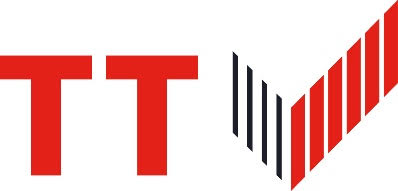
In response to the exponential growth in contraband drugs entering Europe via ports on the Atlantic seaboard, specialist freight insurer TT Club is increasing its efforts to promote industry awareness of both trends in criminal activity and methods of combatting its success.
London, 30th May, 2023
In the past two months, since the beginning of April, yet more examples of criminal gangs utilising the complexity of European import trades to smuggle in drugs have continued to emerge. Reports include cocaine in containers of fruit through the port of Antwerp; in Rotterdam narcotics were discovered in reefer containers carrying melons from Panama; ecstasy with a value of €1.5 million in a truck at Calais and Le Havre emerging as a hotspot for cocaine imports; 133 kilos of marijuana and hashish at the Port of Motril in southern Spain brought in from North Africa, and news of smuggling gangs with links to Brazil operating in Lisbon and Oporto.
“These are just fragments of the evidence that we have of the crucial role ports are playing in the illicit drug trade across Western Europe,” comments Mike Yarwood, Managing Director Loss Prevention at TT Club. “110 tons of cocaine were seized at the port of Antwerp last year and much has been reported of how the city has become the European hub for drug importation. But the network of channels for the trade is widespread and few ports along the seaboard can turn a blind eye to the problem.”
To open the industry’s eyes to the dangers yet further, TT is committing significant resource to collating detailed reporting, including that of their partner BSI Screen, to create greater awareness of the sophisticated methods that criminals employ, the extent of their geographical reach and the diverse gateways they are using to supply the vast European market for illicit drugs.
“Increasing awareness, particularly the role of European ports in drug smuggling is crucial to restricting this trade,” comments Erica Bressner, BSI’s European Analyst. “Especially as indications show that smuggling at ports may be increasing for certain key narcotics, like cocaine. Europol has reported record-setting seizures of cocaine every year since 2017, particularly in seaports. This points to a growing market for the narcotic as cocaine becomes more affordable to the average consumer.”
“In response, European port authorities have worked to implement additional security measures to combat this trade and its concurrent violence. However, the control of the criminal syndicates is such that they have the ability to adapt their smuggling routes to evade authorities. This includes a diversification of smuggling routes to target non-traditional ports of entry where security measures are less intensive,” says Bressner.
With the potentially enormous profits to be made within the drugs trade, funds to bribe port employees and others working in the transport infrastructure are readily available. Customs officials and police officers are not beyond corruption and the current levels of inflation and high living costs are further incentivising those that were perhaps beyond reproach in the past. In addition to corruption, the criminal syndicates are able to discover key contacts at the ports (often online and through social media) and threaten them and their families with harm to ensure their compliance and silence.
Ports offer an attractive transfer point for drugs from sea going vessels and containers to trucks. These trucks leaving for the hinterland can contain contraband, often without the driver’s knowledge, and are hijacked, increasingly by heavily armed and brutal gangs. Also becoming more extensive is computer hacking, either to directly obtain information of a specific containers whereabouts or intended destinations, or to plant tracking software that facilitates raids at pinpointed locations.
Much more vigilance across European port communities is clearly required. TT’s Yarwood outlines one strategy, “Employee vetting and training both in terms of motivating them to be vigilant and loyal but also in terms of maintaining secure processes of documentation and online communication. Identifying the more common origin points of contraband cargo, such as South America and North Africa, and ‘rogue’ consignees and unexpected delivery points will help,” he advises.
Security at the established targeted ports has naturally been increased with, for example a new seventy-strong security corps established in Antwerp, increased CCTV surveillance and the use of drones in Rotterdam, and a specialist anti-drug trafficking police unit in the Netherlands. However, the crime groups are well entrenched, having established long tentacles throughout supply chains and are sophisticated in their expertise and knowledge of how trade works.
“We are dealing with global crime syndicates,” concludes Yarwood. “Efforts to combat their activities will be akin to squeezing a half-inflated balloon, we may constrict them in one or two ports but they will find ways to exploit others. We urge all in our industry then to be aware of the possibilities of drug importation and to take all steps they can to restrict this illicit trade.”





